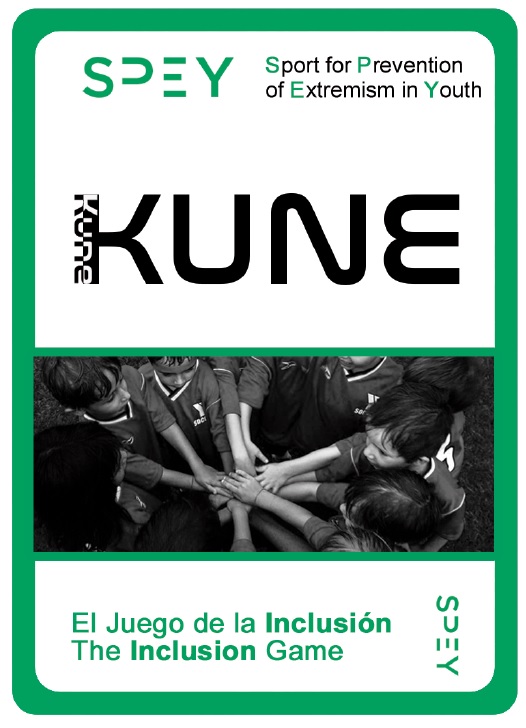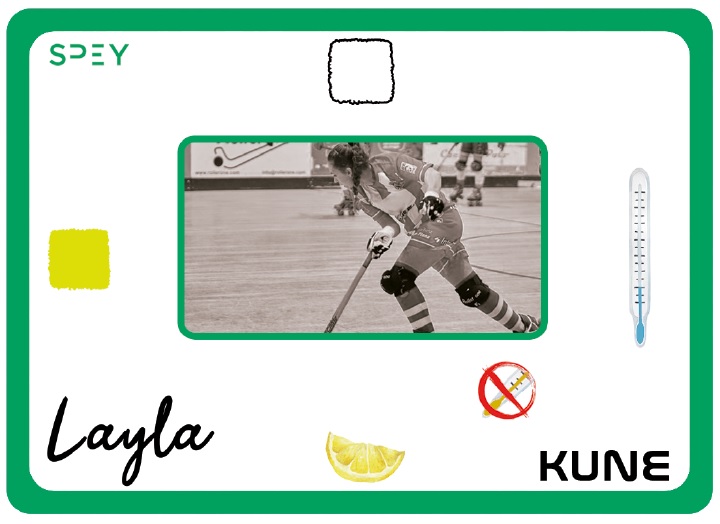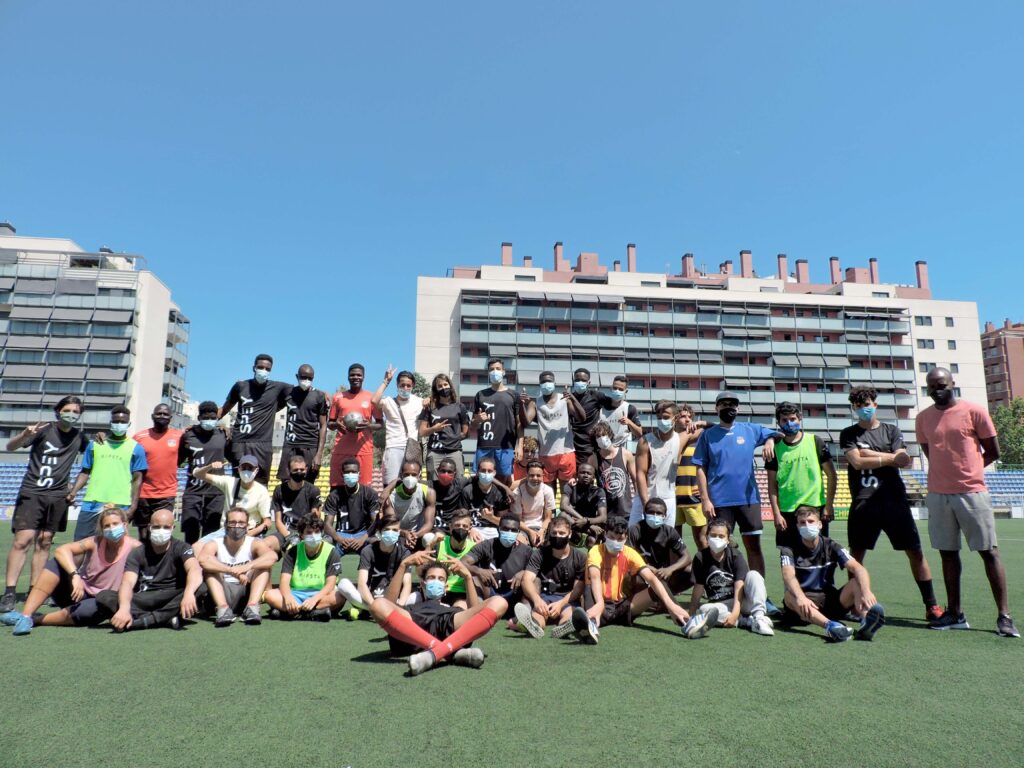
KUNE, the new collaborative board game of the SPEY project (Sport for the Prevention of Extremism in Youth) which aims to promote inclusion, is now available for download.
Created by Snafu Design and financed by the European Commission, KUNE is a cooperative game for groups of 2 to 6 players where the winner is the player that arrives at the end after beating the “life” deck of cards and avoid accumulating too much. KUNE is composed of about 100 cards, divided between character cards; life letters; and action letters.
On the other hand, it should be noted that each character card has four different characteristics grouped in colours; figures; temperature and taste. These attributes can be extrapolated to real characteristics of our day such as religion, sexual identity, studies and ethnicity, among others. Therefore, they are a clear example of the differences between the different people, but in the end, they are forced to cooperate to win the game. Find out all the rules here.
“What we are looking for with KUNE is to make board games understood as socializing tools, which unite people to dedicate themselves to something specific: play and learn,” says Francesc Martí Pelejà, in charge of the design and development of the game.

Some of the benefits of the new SPEY board game are improved concentration, and learning to follow the rules; the development of intellectual abilities; encouraging teamwork; acts as a tool against frustration; it drives decision making and develops abstract thinking.
SPEY, a project to prevent the radicalization of youth
The SPEY project, led by UFEC and co-funded by the European Commission, combines the practice of sport and the learning of transversal skills with the aim of minimizing the risk factors involved in the process of radicalization in youth.
Given that youth at risk of exclusion are a vulnerable group and may become permeable to certain hate speech and extremist ideologies, SPEY seeks to improve the integration channels and support network of this community, giving them new resources and more constructive and positive tools, so that they can choose new vital opportunities.

Led by renowned academics, SPEY also wants to provide the project with tools capable of measuring the effectiveness of programs aimed at preventing extremism through sport. SPEY has the support of 7 countries and 10 ‘partners’, including the Swedish Sports Confederation, the Union of Federations of Latvia, the International Council of Sport and Physical Education of Germany, the City Council of Gondomar in Portugal, the Greek Ministry of Culture and Sport, the French think tank Sport and Citizenship, SNAFU and the University of Córdoba.